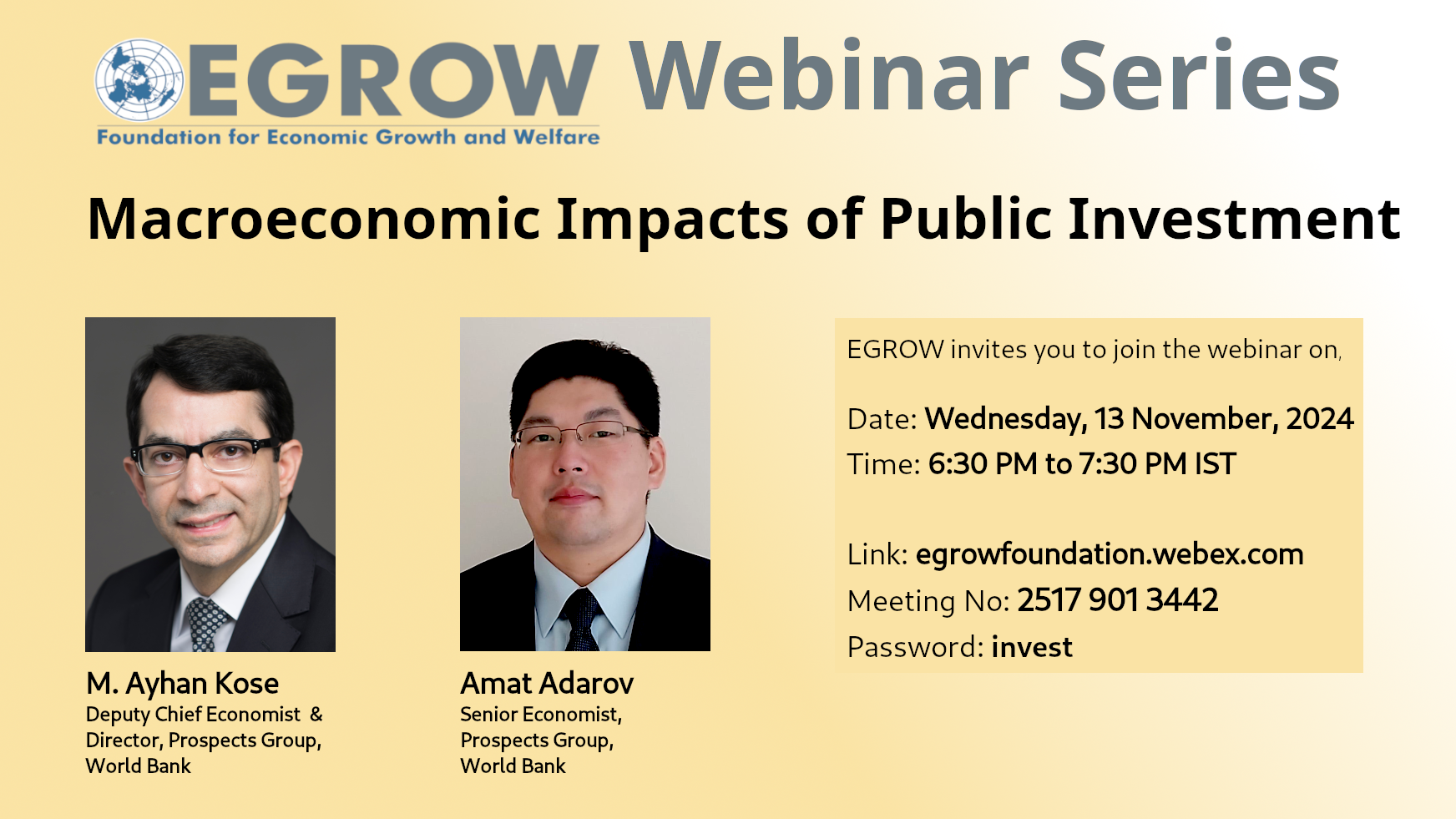Macroeconomic Impacts of Public Investment

Webinar Link
Meeting No: 2517 901 3442
Password: invest
Certificate of Participants
To recieve certificates, please register and attend
Abstract
A significant acceleration in investment is essential if emerging market and developing economies (EMDEs) are to achieve key development goals and tackle the challenges associated with climate change. Investment—public as well as private—tends to fuel a virtuous cycle of development, boosting growth, improving productivity, and reducing poverty. In EMDEs, however, investment growth has seen a sustained slowdown since the global financial crisis and is expected to remain weak in the coming years. Policy action is necessary to reverse this trend. Public investment averages about one-quarter of total investment in the median EMDE—a modest share. Yet it can be a powerful policy lever to help ignite growth, including by helping to catalyze private investment. This webinar presents the main findings of our recent study on the macroeconomic effects of public investment in EMDEs. We report that public investment in these economies has experienced a historic slowdown in the past decade. In EMDEs with ample fiscal space and a record of efficient government spending, on average, scaling up of public investment by one percent of GDP can increase output by up to 1.6 percent over five years. Public investment also crowds in private investment and boosts productivity, promoting long-run economic growth in these economies. To maximize the impact of public investment, EMDEs should undertake wide-ranging policy reforms to improve public investment efficiency—by, among other things, strengthening governance and fiscal administration—and create fiscal space through revenue and expenditure measures. The global community can play an important role in facilitating these reforms—particularly in lower-income developing countries— through financial support and technical assistance. (Read the background study).
About the Speakers
M. Ayhan Kose
Ayhan Kose is the Deputy Chief Economist of the World Bank Group and Director of the Prospects Group. He is a member of the Chief Economist’s leadership team overseeing the Bank’s analytical work, and policy and operational advice. He also leads the Bank’s work on the global macroeconomic outlook, financial flows, and commodity markets. Under his management, the Prospects Group produces the Bank’s flagship reports Global Economic Prospects and Commodity Markets Outlook, in addition to other policy and analytical publications. Prior to joining the World Bank, he was Assistant to the Director of the Research Department and Deputy Chief of the Multilateral Surveillance Division in the International Monetary Fund (IMF). He served in a wide range of roles supporting IMF’s analytical, policy, and operational work.
Mr. Kose has written extensively on international macroeconomics and finance. His articles have been published in leading academic journals. His latest book, Falling Long-Term Growth Prospects (co-edited), examines the evolution of global potential growth and its underlying drivers. His recent policy work focuses on global inflation, debt challenges, and business cycles.
Amat Adarov
Amat Adarov is a Senior Economist with the World Bank's Prospects Group. His research focuses on macroeconomics, international trade, and finance. He leads a research agenda on investments and contributes to the flagship Global Economic Prospects report. His recent journal publications include studies on integration, macro-financial stability, capital flows, and global value chains. Prior to joining the World Bank, he led a range of research projects in international economics at the Vienna Institute for International Economic Studies. His previous professional experience in the public sector focused on macroeconomic analysis and modelling, forecasting, and investment policies. He holds a Ph.D. in Economics from Sam M. Walton College of Business at the University of Arkansas.